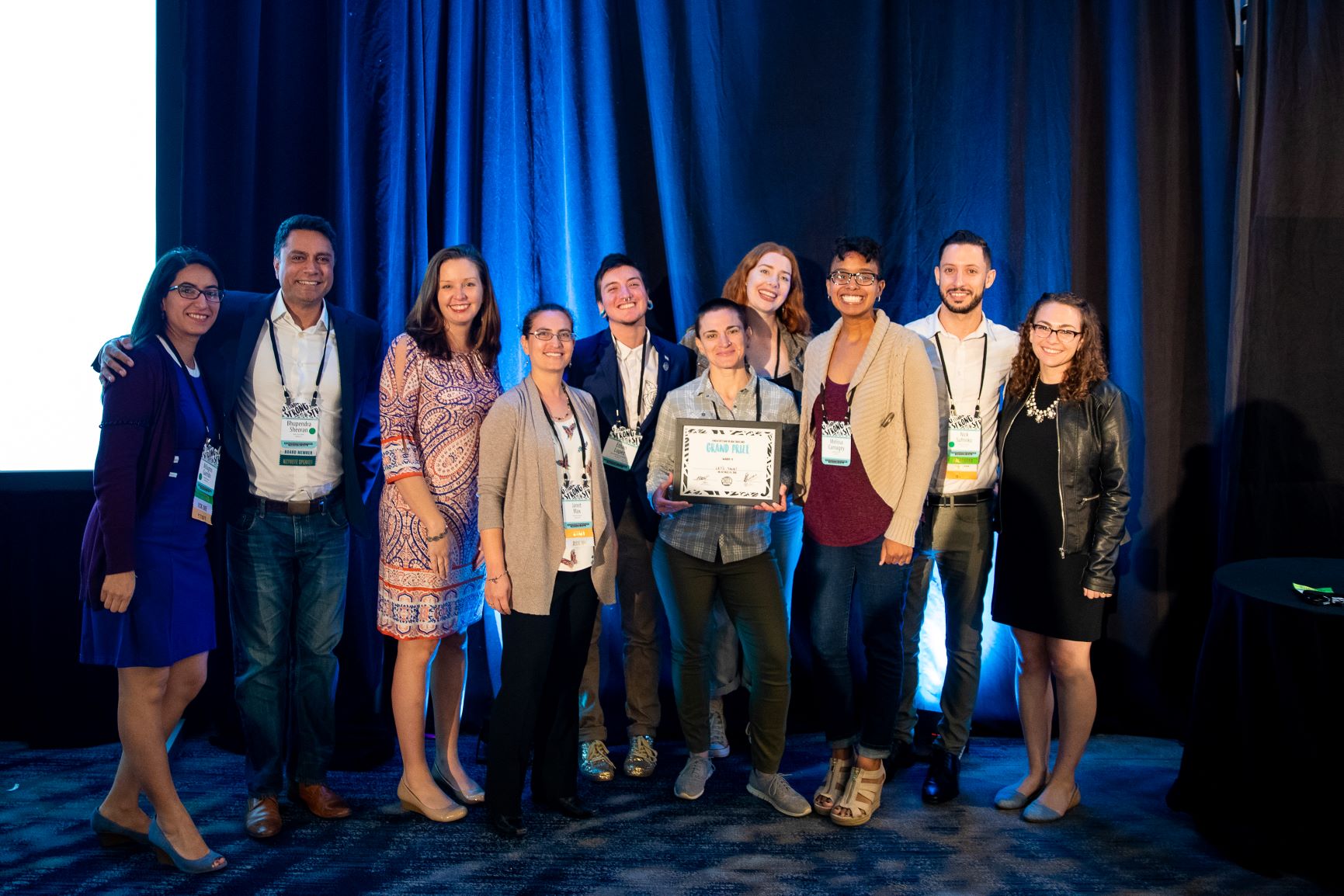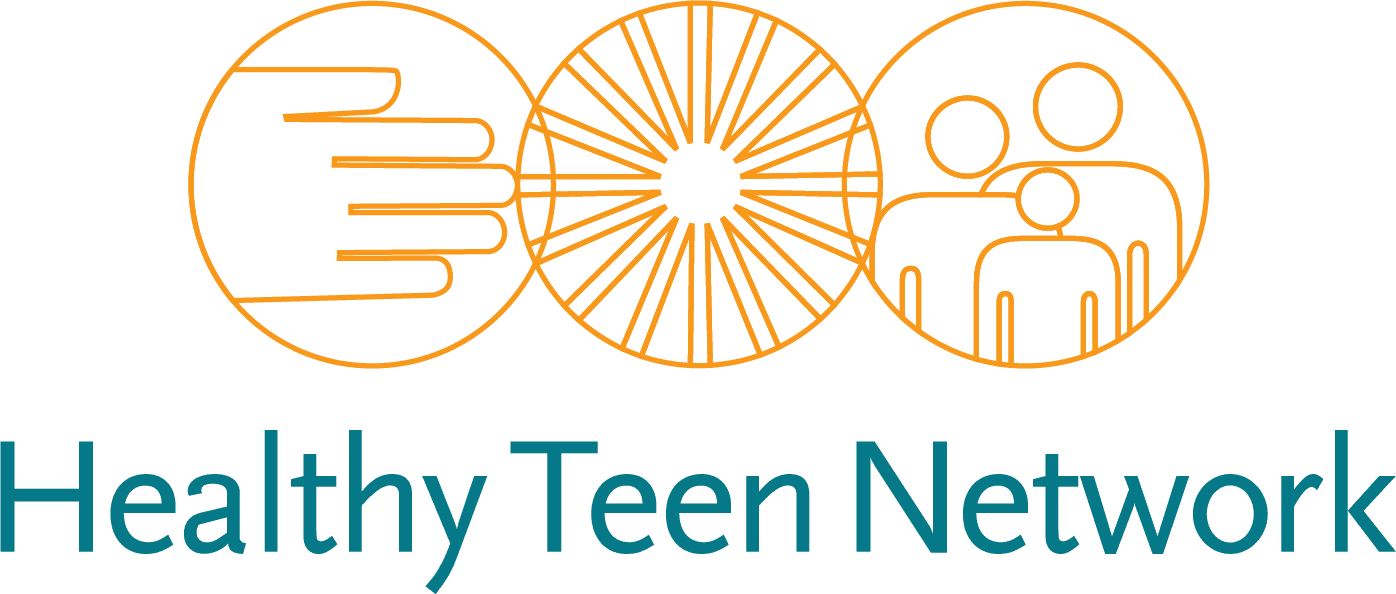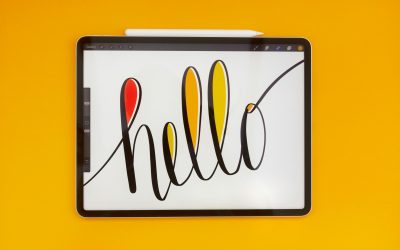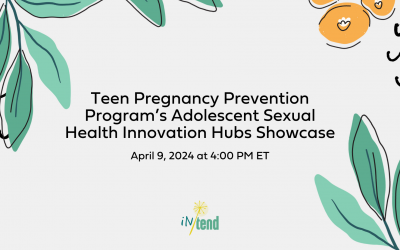
How might we center pleasure in adolescent sex ed to foster authentic conversations about sexuality and promote positive sexual experiences?

November 15, 2018
This was the question we sought to answer in the #HealthyTeen18 Design Challenge, held in October 2018 in San Diego, at our annual national conference.
Against the backdrop of continued attacks on sex education, Healthy Teen Network, in partnership with youth + tech + health (YTH), called for a new commitment to sex positivity. Creators and practitioners, educators and students, advocates and youth alike from across the United States came together to answer this question, diving into an immersive, design school-inspired process that was at once challenging, rewarding, and exhilarating.
Why this question? Because it’s important! Whether one is sexually active or not, knowing to recognize one’s own pleasures is a crucial aspect for establishing an accurate and positive view of oneself. For those who are or who someday plan to be sexually active, thinking about, articulating and respecting one’s own and one’s partners’ pleasures and desires is foundational for consent, which, among other things, occurs only when all partners are feeling good. And finally, having frank, open conversations about sexual pleasure acknowledges people have sex for reasons other than reproduction, affirming the identities of LGBTQ+ people too often erased by curricula infatuated with the nitty-gritty details of when sperm meets egg. Read more on why we need to focus on sex positivity…
Sex+: A Sexual Health Revolution, Healthy Teen Network’s 40th annual national conference, will be held October 28-30, in New Orleans.
Using the human-centered design process, Design Challenge participants developed rapid, innovative solutions to center pleasure in sex ed. Our participants were incredibly engaged and committed to the process. A diverse panel of judges, consisting of funders, sex educators, and youth assessed the solutions using the following criteria:
- Creativity: How creative is this solution? Is this solution “outside of the box?”
- Design Thinking: How well did this group use design-thinking principles in creating their idea? How responsive was this team to their audience?
- Responsiveness: How well does the solution address the design challenge question?
- Feasibility: Could this idea actually be implemented? Would it be successful?
- Youth-Friendliness: Were the voices of youth-centered? Would youth find their proposed interaction(s) with the idea appealing?
It was not an easy decision, and the scores were all very close!
The winning solution, receiving the $1,000 grand prize, was the Let’s Talk Card Game, proposed by Ethan Lopez, Melissa Carnagey, Heather McKenzie, and Rose Barcklow), a card game designed for parents. Using the game, families were supported to create conversations around consent, pleasure, healthy relationships, and inclusivity. (You can watch the Let’s Talk Card Game pitch in our Facebook live video recording, as well as the excitement as we announced their idea to be the winning solution.)
The first runner-up, earning the $500 prize was proposed by Aurora Chavez, Emily Wasson, Katie Farro, and Mary McNeal, was the Pleasure Squad, a program that recruits sex educators to join the Squad. These educators then receive training and support to answer questions with a pleasure-based lens, and young people may pose these questions privately using Instagram direct messaging. (Pleasure Squad Facebook live video recording available online.)
In no particular order, the other two teams also shared amazing new ideas. Their ideas were so inspiring that one of our funders and judges, from The Annie E. Casey Foundation, provided an impromptu $300 award for each team.
Amanda Pedroza, Angela Garcia, Jessica Chapman, and Tanitia Burks (the only team to include two young people as participants!) developed My Upgrading Journal as a way for young people to explore the ups and downs of puberty and their maturing bodies. The Journal helps adolescents feel encouraged to have conversations to help normalize exploration of their bodies, serving to reduce shame and stigmatization. (My Upgrading Journal Facebook live video recording available online.)
Angela Cole, Lindsey Hensley, Kenneth Metasavage, and Nicole Sheitz created the idea for the Let’s Talk App, as a way to create a unique, individualized experience using guided questions and a curriculum. The app would connect youth, educators, and parents all in one platform to have healthy, holistic, and meaningful conversations about sexual health. (Let’s Talk App Facebook live video recording available online.)
And that’s a wrap for #HealthyTeen18 Design Challenge! It was our first design challenge at the Healthy Teen Network conference, but we already want to do it all over again!
Sex+: A Sexual Health Revolution, Healthy Teen Network’s 40th annual national conference, will be held October 28-30, in New Orleans.
All solutions created as part of this Design Challenge will be shared online under a Creative Commons Attribution-NonCommercial-ShareAlike 4.0 International License.
The #HealthyTeen18 Design Challenge was supported, in part, with generous donations from The Annie E. Casey Foundation and Merck.
At Healthy Teen Network, we believe every young person has the right to be who they are and love who they love. And we see you, the professionals and caring adults, helping them do this. We know you do your best when you're connected to great opportunities and resources. That's why we're here...to help make those connections and support you. Read more about us.










